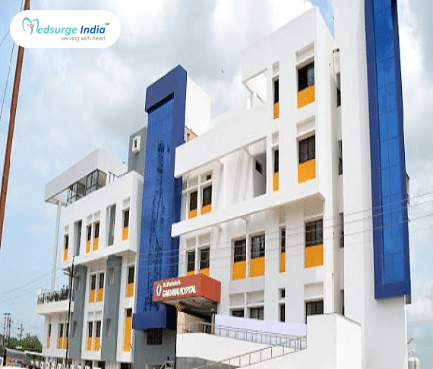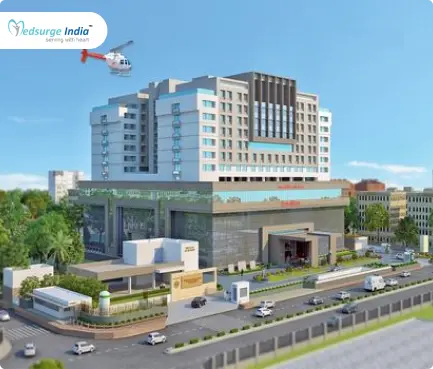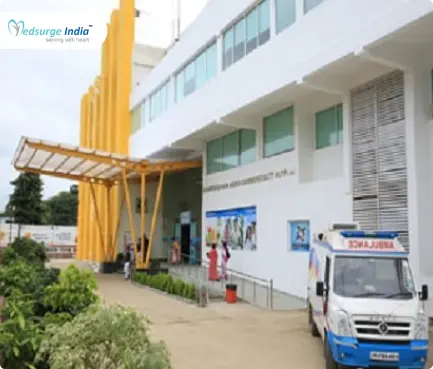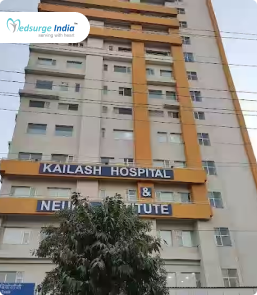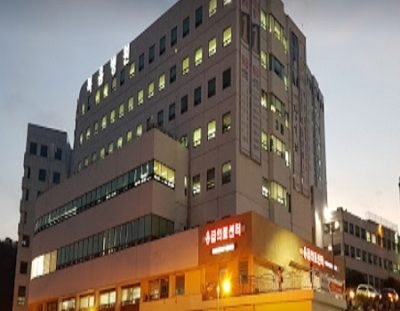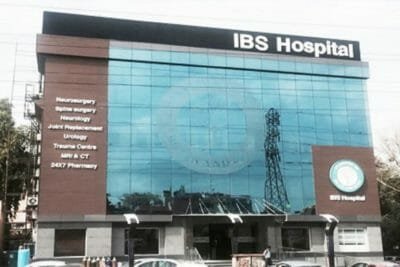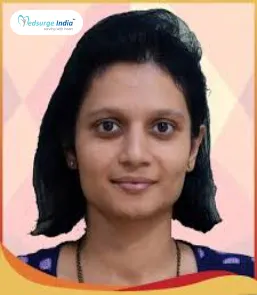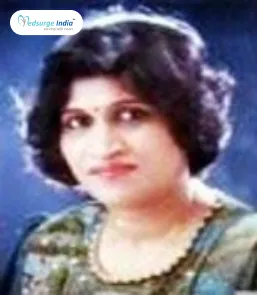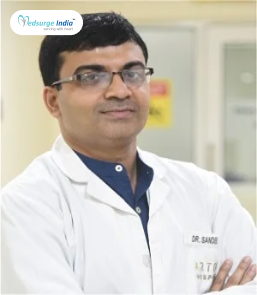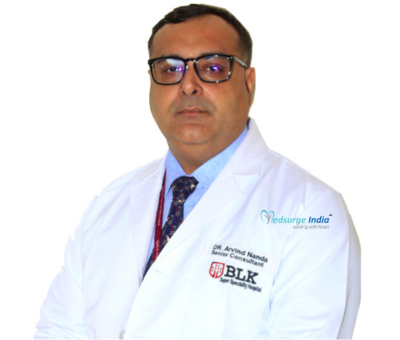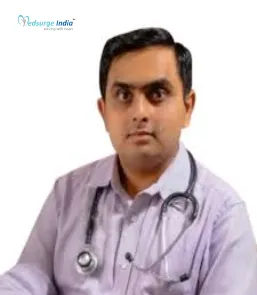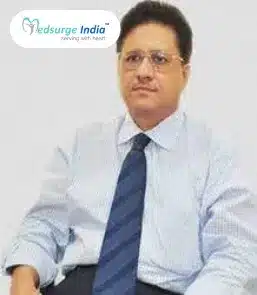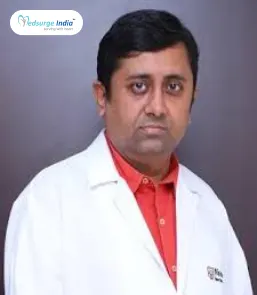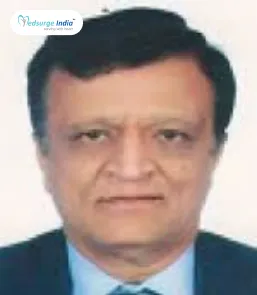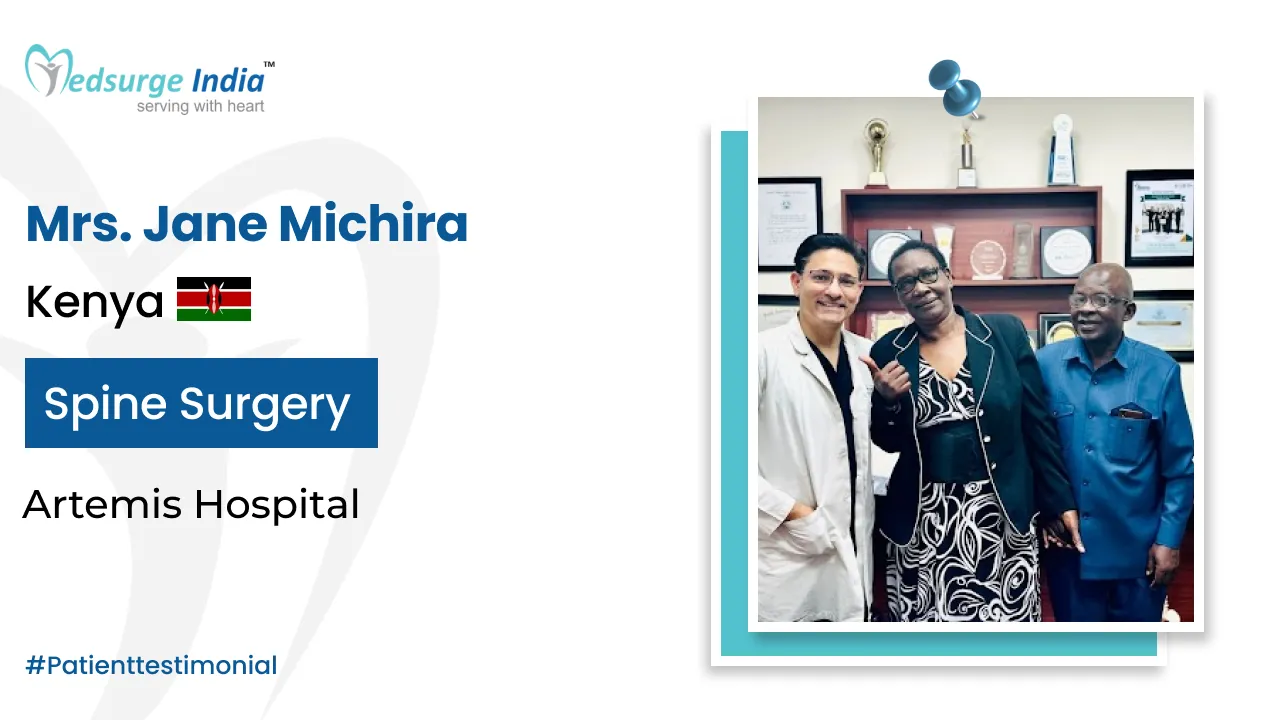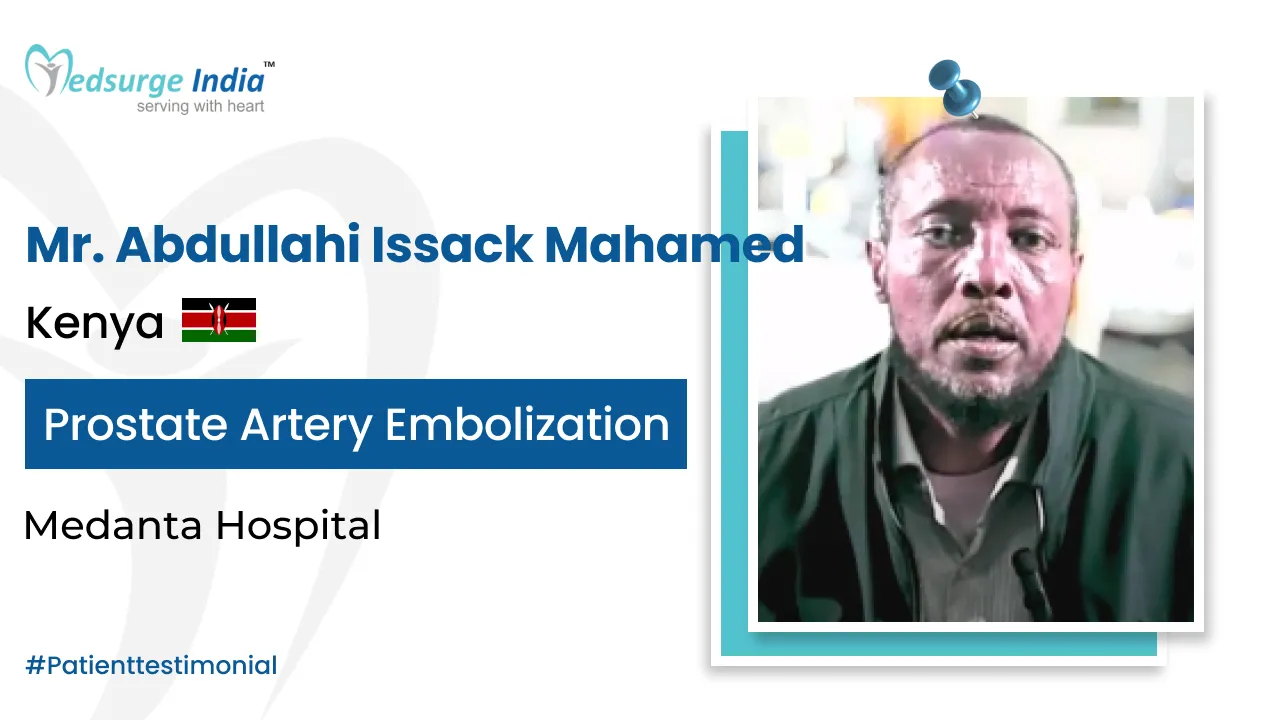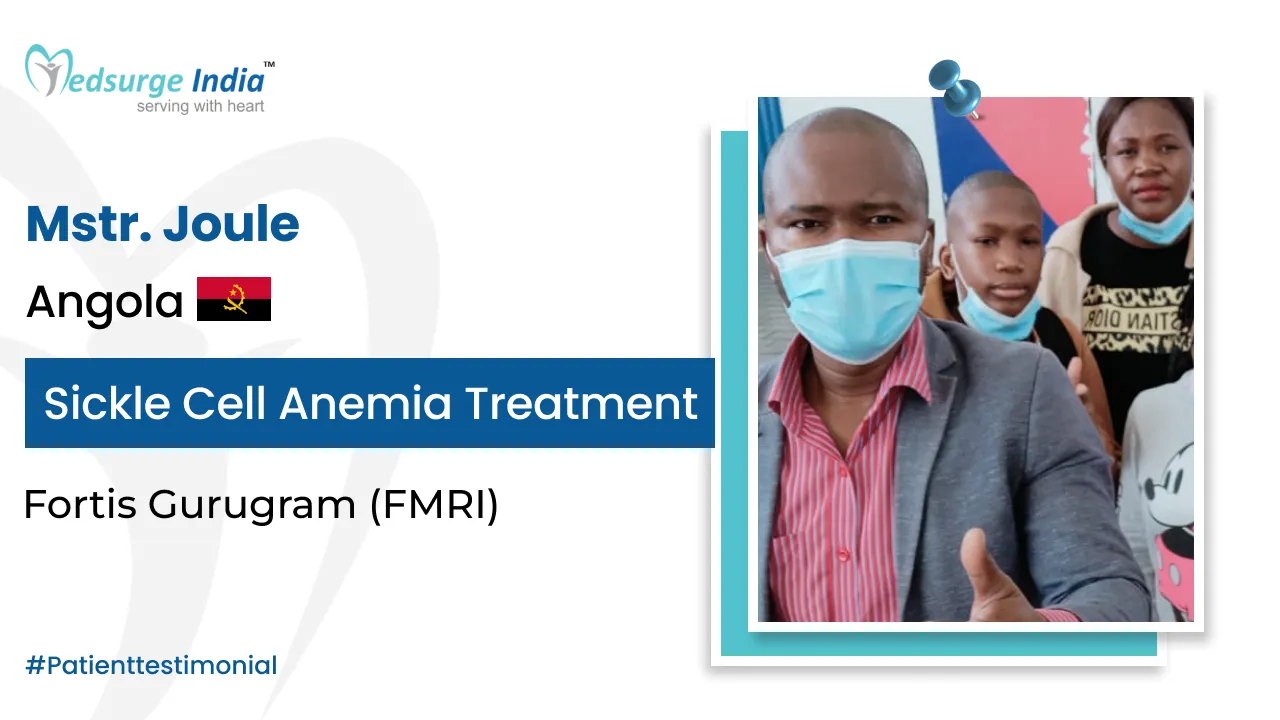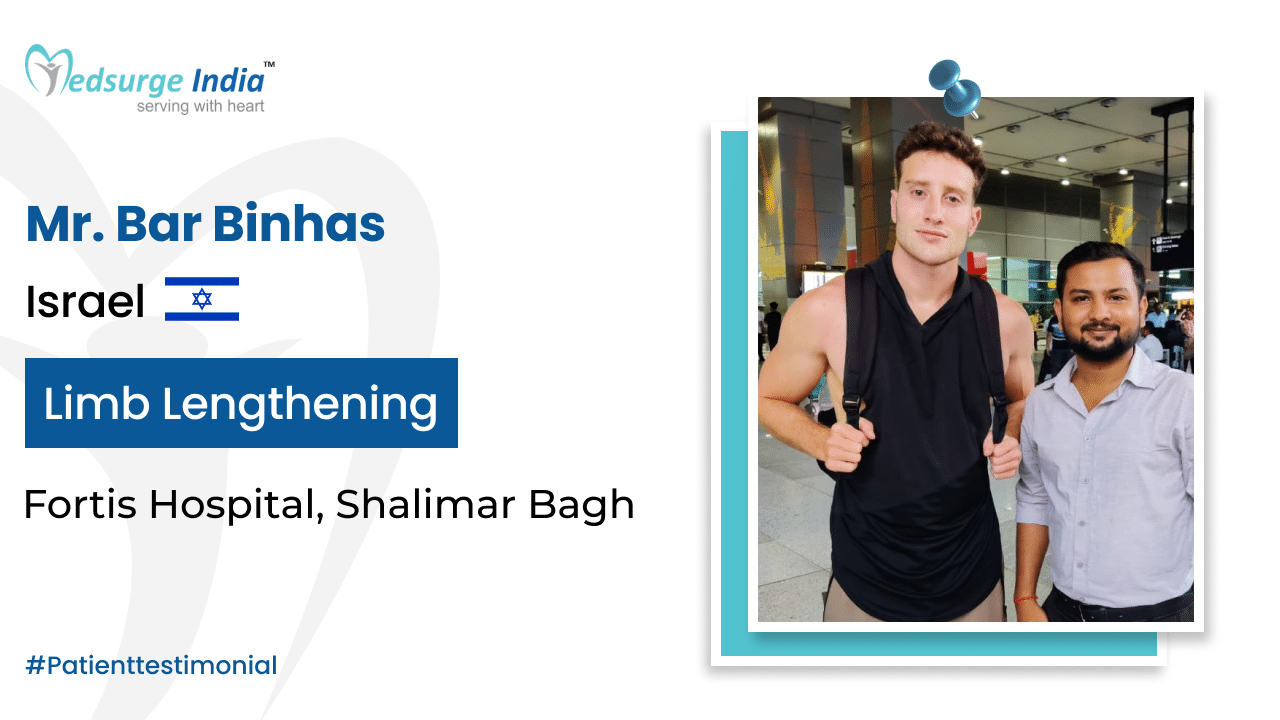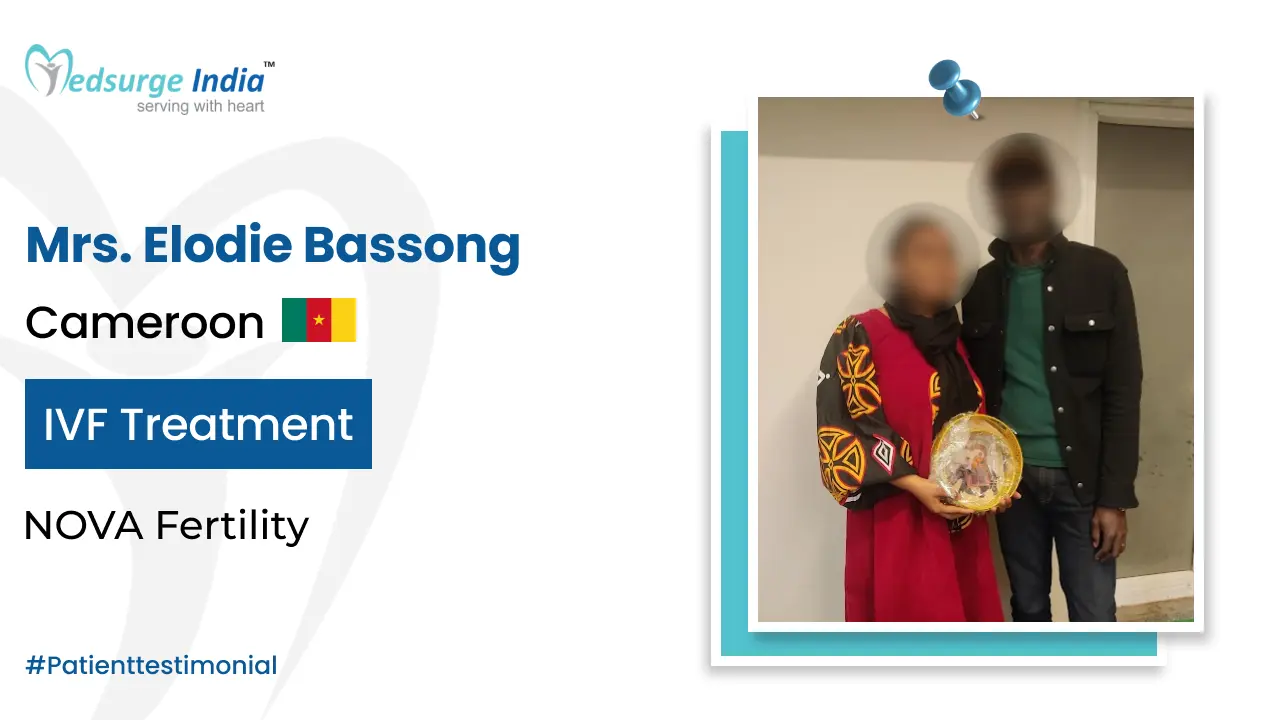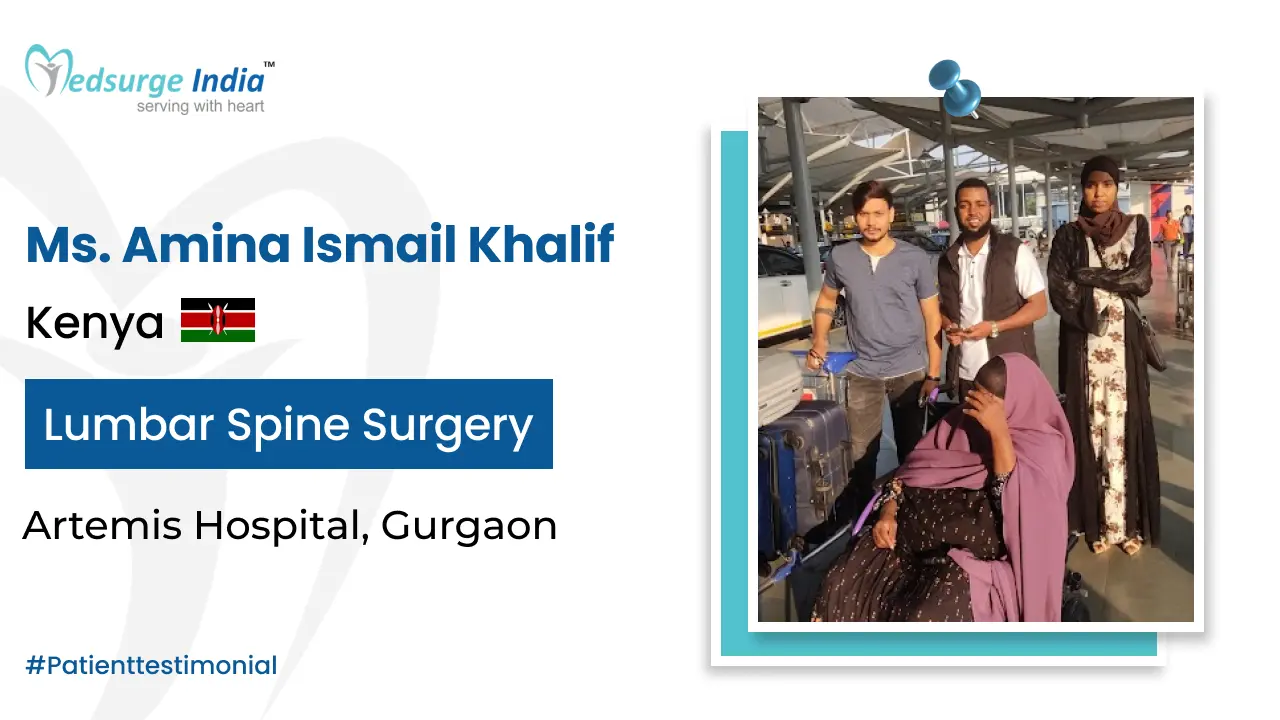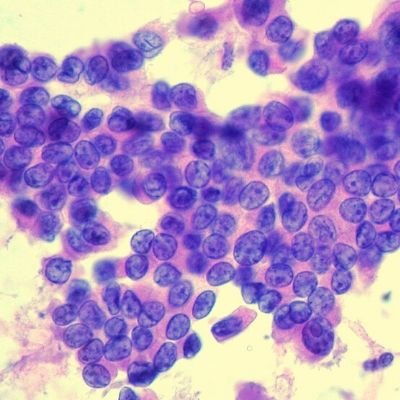
Papillary Thyroid cancer is a cancer of the thyroid gland, which can be a formation of lumps or nodules from the butterfly-shaped gland at the base of the throat just above the collarbone. It’s likewise known as Papillary Thyroid Carcinoma.
Papillary Thyroid cancer may be treated through surgery where part of the comprehensive thyroid gland has been removed. Additionally, it may be treated by way of radiation treatment, chemotherapy, thyroid hormone therapy, or targeted treatment.
Papillary Thyroid Cancer Treatment Cost in India
Papillary thyroid cancer surgery cost in India starts from USD 3000. It’s cost can also go upto USD 9000 this typically includes necessary preoperative tests, the patients condition of its eyes and the type of surgery itself. However, please note that accommodation and transfers are not included in this cost.
Cost of Papillary Thyroid Cancer Surgery in Different Cities in India
| Cities | Starting Price |
| Delhi | USD 3000 |
| Gurgaon | USD 3200 |
| Noida | USD 3000 |
| Mumbai | USD 3500 |
| Hyderabad | USD 3200 |
| Chennai | USD 3000 |
| Kolkata | USD 3100 |
| Bangalore | USD 3600 |
Note: Keep in mind that the above-mentioned cost provided is solely for the treatment. The overall cost of Papillary Thyroid cancer surgery in India will be determined based on several factors.
Symptoms of Papillary Thyroid Cancer
Sometimes, symptoms could be found due to evaluations for one more issue. It might also be discovered during physical examination wherever your physician discovered a lump or nodules in your thyroid. Since the nodule gets larger you will find symptoms such as:
- Difficulty to swallow
- A lump in your neck that could be seen and felt
- Sore throat or hoarseness in the voice that is consistent
- Swollen lymph nodes in the neck
- The difficulty with breathing especially while lying down.
Indications
- Peak onset ages are from 30 – 50 years old
- It is more common in women than men by a 3:1 ratio
- The prognosis depends on age, tumor size, and, gender.
Causes of Papillary Thyroid Cancer
The Precise Reason for Papillary Thyroid cancer Isn’t Understood but certain Variables listed below Could be attributed to the Origin:
- Genetic illness: Particular genetic conditions like Cowden disease, Familial Adenomatous Polyposis (FAP), and Gardner syndrome can change it.
- Radiation treatment: Exposing the throat, head and, chest to radiation can raise an opportunity.
- Family history: This cancer also runs in the family for some cases.
- Gender: For some unknown reasons, it occurs more frequently in women.
Diagnosis and Tests of Papillary Thyroid Cancer
Physical exam to check for nodules and symptoms
- Blood tests to check levels of thyroid-stimulating hormones (TSH)
- Ultrasound
- Biopsy
- Thyroid scan
- CT Scan
- PET Scan
- Vocal-chord exam (Laryngoscopy)
Stages of Cancer
The stage indicates how far cancer has progressed.
- Tumour (T): Ranges from 1 – 4 depending on the size
- Node (N): Either 0 or 1 depending on whether cancer has spread on to nearby lymph glands
- Metastases (M): Either 0 or 1, depending on whether cancer has spread to other parts of the body.
Different Types of Treatments for Papillary Thyroid Cancer Surgery
- Surgery: the very first line of treatment for thyroid gland between one of the followings:
- Thyroid lobectomy: removal of half the thyroid gland
- Total thyroidectomy: elimination of all of the thyroid gland
- Subtotal thyroidectomy: Nearly all of the thyroid gland has been removed.
- Radiation Iodine Ablation (RIA): When the thyroid gland is greater than 4 centimeters in size and develops past the thyroid, then a one-time therapy for taking radioactive iodine might be completed in capsule or liquid form. This eliminates any residual cancer cells following surgery.
- External radiation: X-Ray beams are vulnerable to the affected area. After the danger of operation is too large, cancer is competitive, and also, papillary thyroid cancer spreads beyond the thyroid, for example, therapy is determined.
- Chemotherapy: To halt the cancer cells from dividing through injection, drugs are treated. Your physician will select the best kind of chemotherapy drug.
- Thyroid hormone treatment: Your physician can prescribe drugs that can remove cancer-producing hormones or block their action to block the cancer cells from growing.
- Targeted treatment: These drugs take particular characters in cancer cells such as gene or protein mutation and stick for them to destroy the cells to help alternative treatments such as chemo to operate much better.
Helpful – Radiation Therapy Cost in India
Get Free Cost Estimation
Procedure
Before Procedure
- Physical Evaluation of This Entire Body
- Diagnostic tests and Tests
- Your complete medical history and review of Evaluations is Completed by your Physician
- Your cancer Phase will be identified, and the type of treatment will be discussed
- You’ll Be asked to Discontinue some Medicines by your Physician
- If you suffer from hyperthyroidism, You Might Be asked to take Any Medication to control your hormone levels Prior to Operation
- You’ll Be asked to Quickly 8 — 12 hours before Operation
During Procedure
- A straightforward operation should take less than two hours to execute differently, an entire thyroidectomy could take approximately 3 – 4 hours
- Typical anesthesia will be administered to you
- A small incision, about an inch, can be created at the lower portion of the throat. The incision also depends upon the size of the nodule
- All of the very important structures within the throat are identified, split, or split to prevent any harm
- when the lobectomy is recognized, the isthmus is split
- The embryo or the contaminated area is completely or partly or sub-totally eliminated
- The lymph nodes surrounding will also be analyzed if they’re cancerous or not
- The incision is then closed with stitches.
After Procedure
- You’ll Be at a special Healing area where You’ll be Tracked Carefully
- Temporary fluids are inserted via Capsules till you can drink, along with other tubes be Added to remove any excess fluid in the incision area
- Your stitches will dissolve in a Couple of Days or be Eliminated manually
- You May experience soreness of the Neck and Throat for a Couple of days
- Your voice Might also change for Several days
- Some pain relief Medicines will be Awarded for you
- You Might Need to eat soft foods and Beverages till you recover Completely
- You’ll be hospitalized for about a day or 2 depending upon your restoration
- you’ll be taught how to exercise your own neck and leg together with breathing exercises to ensure the correct operation of your body and lungs to prevent blood clots or illnesses.
- If Total thyroidectomy is completed, you’ll have to take thyroid hormone replacement treatment to compensate for your reduction
- Strenuous activities could be prevented for several days
- you’ll have to take some blood tests every couple of weeks to test your thyroid hormone levels and receive the ideal dose of medication
- Follow-up will probably be scheduled.
Factors That Can Affect Papillary Thyroid Cancer Surgery Cost in India
Various factors can affect the cost of Papillary Thyroid cancer surgery in India. Your budget is greatly impacted by numerous elements that fail under pre and post-treatment costs. Below are the various factors that can affect the cost of Papillary Thyroid cancer surgery in India.
- Medication costs: Certain medicines can influence the overall cost of the treatment.
- Patient Condition: The complexity of the disease along with the patient’s overall health can affect the duration of treatment, impacting the cost.
- Duration of treatment: Longer treatment courses involving multiple visits can lead to higher cumulative costs.
- Geographical location: Cost can vary widely depending on the region in India.
- Hospitalization expenses: The length of hospital stay and the level of nursing care required by the patient can add to the treatment expenses.
- Government policies and subsidies: Government healthcare schemes and subsidies can reduce out-of-pocket expenses for patients, affecting the affordability of the treatment.
- Medical tourism packages: Curated packages for international patients can include various services at a bundled cost, influencing the overall expense of treatment in India.
- Hospital reputation and infrastructure: Prestigious hospitals with state-of-the-art facilities may charge more for their services.
- The expertise and experience of medical professionals: Ongologist with extensive experience and recognition often command higher fees, contributing to the treatment cost.
- The type and frequency of diagnostic procedures: Regular monitoring with advanced imaging and laboratory tests can increase treatment costs due to the high price of these diagnostic methods.
- The choice of treatment modality: Opting for newer or more advanced treatment options or precision medicine can be more expensive than traditional approaches.
Papillary Thyroid cancer surgery cost in India offers exceptional medical services and facilities to patients who come for treatment in India also their facilities rival those of well-known healthcare centers worldwide. Accommodation, meals, and transportation expenses are also covered. Furthermore, a foreign patient can save up to 30-40% of the Papillary Thyroid cancer surgery cost in India when compared to their native countries.
Potential Risks and Complications
The minimally invasive operation for Papillary Thyroid cancer is generally safe and successful but complications may happen although infrequent.
- When the vocal nerve is damaged through the procedure, you may sound permanently hoarse
- Because of the injury of a tube put in the air-conditioning through operation, the voice box becomes influenced and your own voice can change which will require 3 -6 months to recuperate. If it takes more than 6 months, rehab and processes will be done by ENT physicians and speech therapists
- If parathyroid glands have been affected, it contributes to hypocalcemia– numbness or tingling of lips and palms. This may be treated with calcium and vitamin D supplements.
Know More –
Best Oncologist in India:
The Most Important Frequently Asked Questions
Q: How Successful Is Papillary Thyroid Cancer Treatment?
A: In younger patients less than 50 years of age, it has a success rate of 98%
Q: What Treatment Will Be Appropriate for Me?
A: This will be based on the phase of cancer along with your general health. Your doctor will decide which treatment is ideal for you.
Q: If I had a Thyroid lobectomy, Will I Still Have Thyroid Hormones?
A: Yes, You are still going to have thyroid hormones because merely a partial portion of the thyroid gland has been removed, which is sufficient to make hormones.
Q: If I Had a Total Thyroidectomy, How Will I Have Hormones?
A: You will be given thyroid hormone replacement therapy to ensure your body has healthy levels of the hormone.
Q: What If I Lost My Voice During Surgery?
A: You might not lose your voice trauma or nerve damage during operation may result in hoarseness or modifications invoice that will be retrieved within 6 months. If it goes beyond 6 months, voice rehabilitation could be carried out. The chance of permanent harm to the nerve is around 1% only.
Q: How Long Will I Be Hospitalized?
A: You will stay for a night or two depending on your recovery.
Q: How Soon Can I Fly After Surgery?
A: Airplane travel isn’t permitted a minimum of two weeks following the operation. You may speak with your physician on travel long haul. Additionally, you might also want to familiarize yourself with the airline security rules prior to traveling.
Q: Do I Need to Carry a Yellow Fever Vaccination Certificate When I Travel to India?
A: Yes, if you’re traveling from Africa, South America, or other areas where yellow fever is located. Click here to confirm the list of states. Both adults and children will need to take the certification.
Q: Can I Get a Visa on Arrival If I Travel to India for My Treatment?
A: Yes, if you are from Japan, Cambodia, Finland, Indonesia, Philippines, Luxembourg, Myanmar, New Zealand, Singapore, South Korea, and, Vietnam. Travelers from Bhutan, Nepal, and the Maldives can enter India without a visa i.e. up to 90 days.
Q: What Are the Eligibility Requirements for a Medical Visa to India?
A: In case you’ve got a valid passport and visa and are looking for medical care in a reputed and recognized hospital in India, then it is possible to make an application for a medical visa to India. In accordance with 2 attendants that are blood, relatives may accompany the individual under different attendant visas.
Top Hospitals for Papillary Thyroid Cancer Treatment in India
Top Doctors for Oncology and Oncosurgery
Dr. Donald John Babu
Consultant , MBBS, MS, Fellowship, MCh, Fellowship
Experience: 13 years of experience
Mumbai , India
Dr. Vidya Bhushan R
Consultant
Experience: 8 years of experience
Christian Medical College, Vellore
Bangalore, India
Dr. Rashmi Shukla
Associate Consultant
Experience: 16 years of experience
Max Super Speciality Hospital, Patparganj, New Delhi
New Delhi, India
Dr. Sanjay Dudhat
Head of Department , MS, MBBS
Experience: 27 years of experience Mumbai , India
Nanavati Super Specialty Hospital, Mumbai
Mumbai, India
Dr. Sachin G
Director
Experience: 24 years of experience
Max Superspecialty Hospital, Mohali
Mohali, India
Dr. Renuka Matti
Visiting Consultant
Experience: 10 years of experience
Dr. L H Hiranandani Hospital, Mumbai
Mumbai, India
Dr. Sandeep Goel
Consultant
Experience: 10 years of experience
Shirdi Sai Baba Cancer Hospital, Manipal
Gurgaon, India
Dr. Arvind Nanda
Senior Resident , MBBS
Experience:
BLK Super Speciality Hospital, New Delhi
New Delhi, India
Dr. Rajesh Mistry
Director , MBBS, MBBS, MS
Experience: 26 years of experience
Kokilaben Dhirubhai Ambani Hospital, Mumbai
Mumbai, India
Dr. Charu Garg
Director
Experience: 22 years of experience
Max Super Speciality Hospital, Saket
New Delhi, India
Dr. Sampath Kumar M.N.
Consultant
Experience: 10 years of experience
Manipal North Side Hospital, Malleshwaram, Bengaluru
Bangalore, India
Dr. (Prof) Bellarmine Vincent Lawrence
Senior Consultant
Experience: 47+ years of experience
Chennai, India
Dr. Gautam Mukhopadhyay
Consultant
Experience: 25 years of experience
Ruby General Hospital, Kolkata
Kolkata, India
Dr. Rohit Malde
Consultant
Experience: 17 years of experience
Nanavati Super Specialty Hospital Mumbai
Mumbai, India



